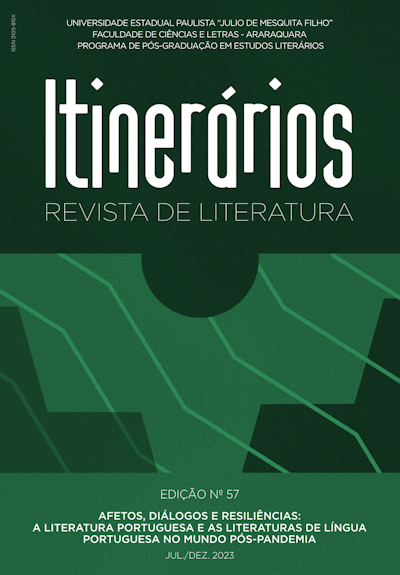It's too late, Inês is dead
the stage of lack in “Pedro, o cru”, in dialogue with contemporary
DOI:
https://doi.org/10.58943/irl.v1i57.18741Keywords:
Contemporary, Portuguese symbolism, Language, Contingency, DeathAbstract
The present study analyzes the confluences between the end of the 19th century in Portugal and the contemporary scenario – with regard to the inclinations of literary theory and cultural studies and, also, with regard to the post-pandemic context. In this sense, António Patrício’s play – chronologically located at the beginning of the 20th century, published in 1918 – raises questions that expand the discussion around themes dear to contemporary times, such as, for example, the discussion around the precariousness of the word – especially in the face of a perspective (and creative thinking) that prioritizes the complexity and diversity of subjectivities, to the detriment of any notion of collectivity or “center”. Therefore, the aforementioned play, by weaving a “narrative of interiority”, whose events are beyond the space considered “normal” or “typical”, favors the discussion around the contingency of language, also resuming themes that mark a lot the construction of Portuguese identity, such as the feeling of saudade and nostalgia, death and absence.
Downloads
Published
Issue
Section
License
Os manuscritos aceitos e publicados são de propriedade da revista Itinerários. É vedada a submissão integral ou parcial do manuscrito a qualquer outro periódico. A responsabilidade do conteúdo dos artigos é exclusiva dos autores. É vedada a tradução para outro idioma sem a autorização escrita do Editor ouvida a Comissão Editorial.

